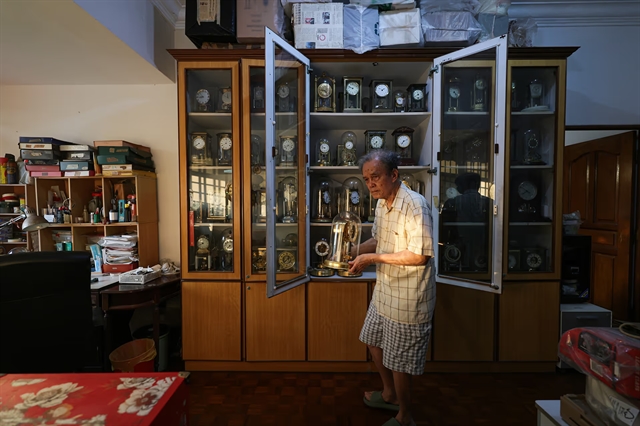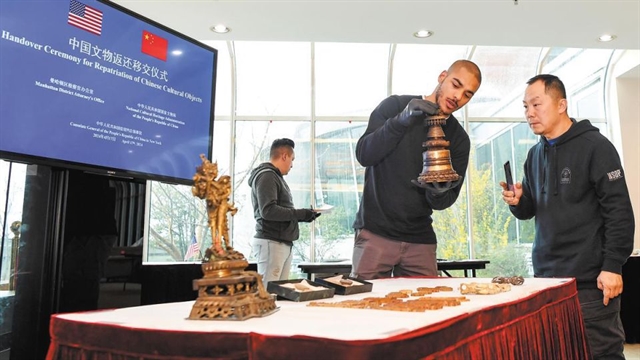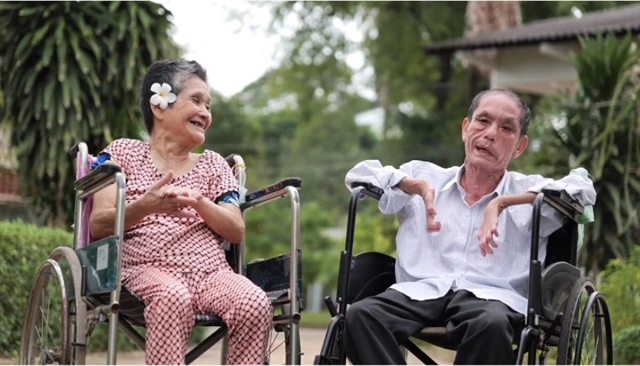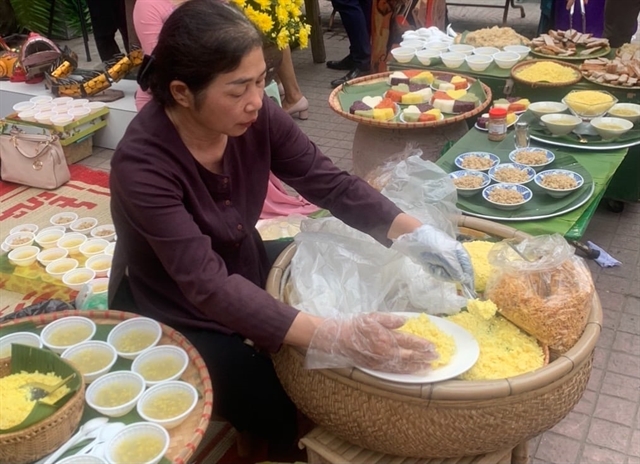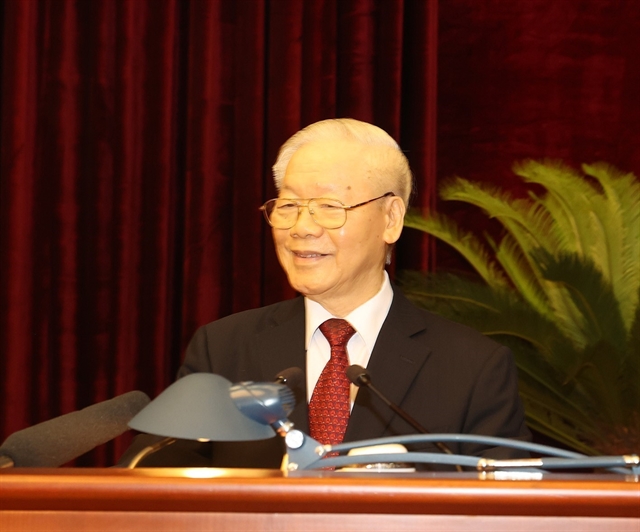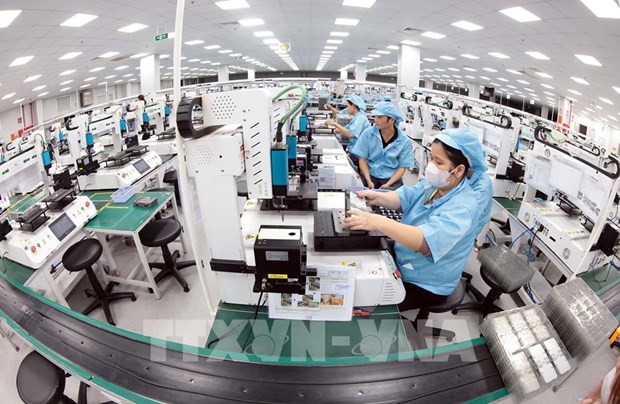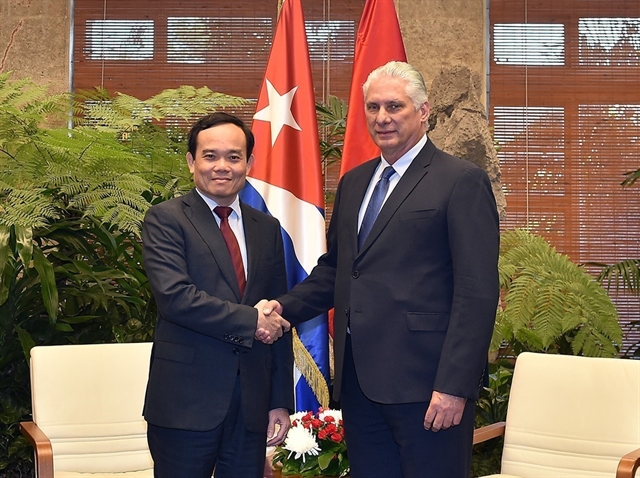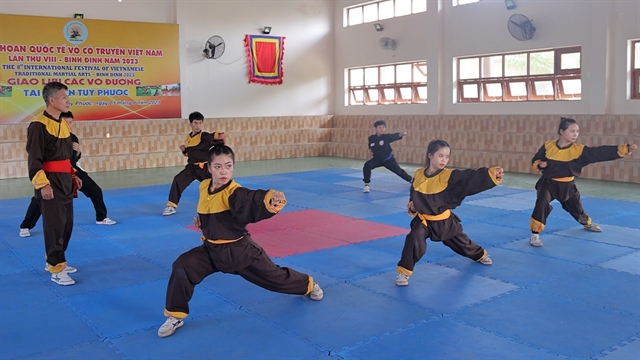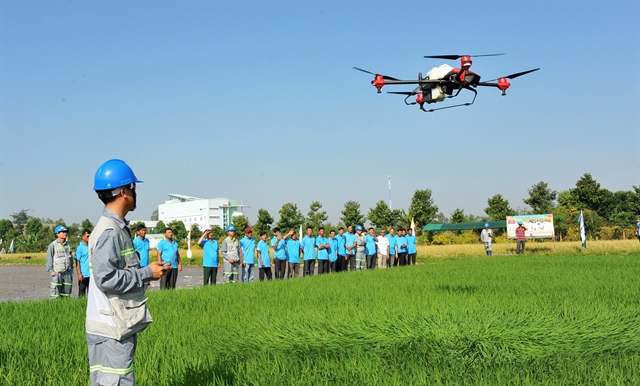 Society
Society
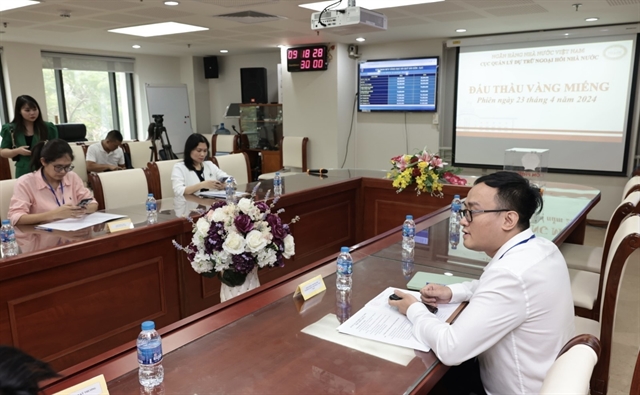
Lâm Đức Du, a forest ranger on Côn Đảo Island in the southern province of Bà Rịa-Vũng Tàu, wakes up at midnight, picks up his flashlight and goes down to the beach to collect turtle eggs.
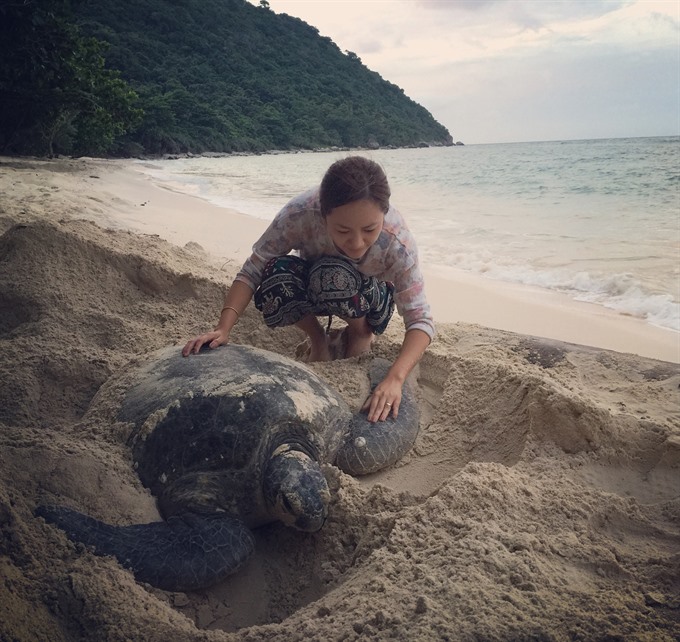 |
| A sea turtle on Côn Đảo Island.— VNA/VNS Photo |
BÀ RỊA-VŨNG TÀU — Lâm Đức Du, a forest ranger on Côn Đảo Island in the southern province of Bà Rịa Vũng Tàu, wakes up at midnight, picks up his flashlight and goes down to the beach to collect turtle eggs.
Under a pineapple bush, a pregnant turtle is lying in a 40cm-deep hole, dug by herself, ready to lay her eggs.
Pregnant turtles can lay about 100 eggs in two hours, and she will dig 3-7 nests during the breeding season, which falls between July and September.
As usual, Du waits until the turtle finishes laying her eggs then takes them to a facility equipped with incubators.
Baby turtles hatch after 45-60 days, but only 1 in a 1,000 survive through to adulthood.
Du is a forest ranger whose job is to incubating turtle eggs under a programme to conserve sea turtles in Côn Đảo National Park.
Statistics from the park show that about 750,000 baby turtles have been released into the sea in the past five years.
Conservation programme
Trần Đình Huệ, deputy head of the national park, said board actually started protecting sea turtles in 1991.
The park had installed chips to track 3,000 female turtles so far, and around 500 females return to the island to lay eggs each year, he said.
Huệ said public awareness of turtle protection had also risen over the years with positive results, and the had co-operated with authorities to ensure residents did not illegally trade, transport or store sea turtles and their products in the province.
Authorites actually arrested a man for illegally storing 116 eggs from the olive ridley sea turtle (Lepidochelys olivacea) in June 2016.
According to test results from the Institute of Ecology and Biological Resources under the Việt Nam Academy of Science and Technology, the eggs belonged to a list of endangered species protected under Government Decree 130/2013/NĐ-CP.
The man was sentenced to 10 months in prison.
The province was the first in the country to take legal proceedings against violations involving sea turtle eggs.
Last year, the provincial People’s Committee issued a message directing authorities to ensure safety in areas where sea turtles lay their eggs in the national park.
Côn Đảo Island is now believed to be the largest nesting site for sea turtles in the country.
Sharp decline
Incomplete data from the Education for Nature — Việt Nam (ENV) released in late July said that Việt Nam was home to leatherback turtles (Dermochelys coriacea), the olive ridley sea turtle (Lepidochelys olivacea), hawksbill turtles (Eretmochelys imbricate), loggerhead turtles (Caretta caretta) and green turtles (Chelonia mydas), which were all in danger due to illegally hunting.
The centre said hawksbill turtles were the most severely depleted species because 80 per cent of the population had been illegally poached for their shells, and green sea turtles face a similar situation. —VNS

